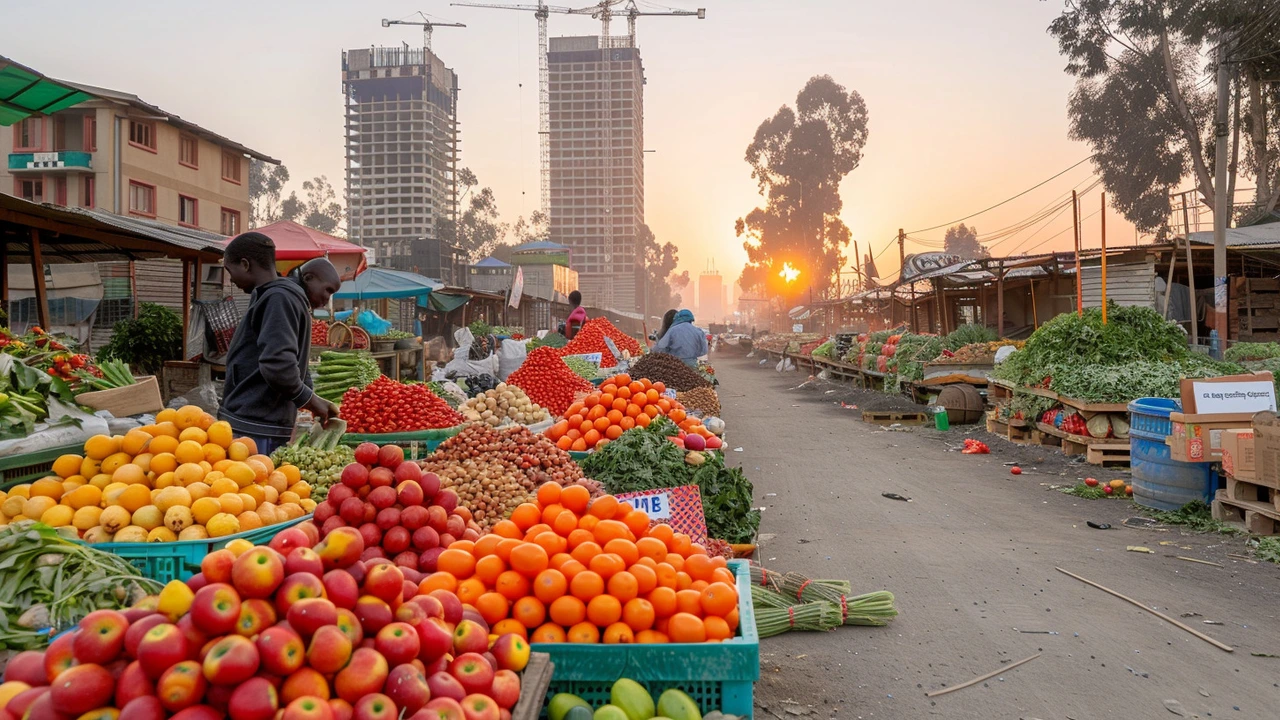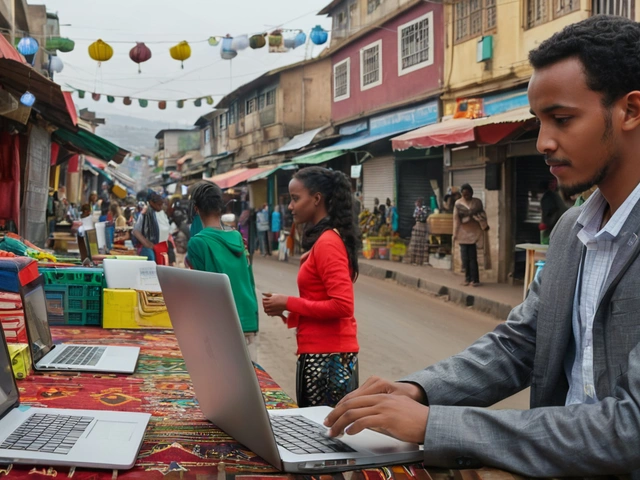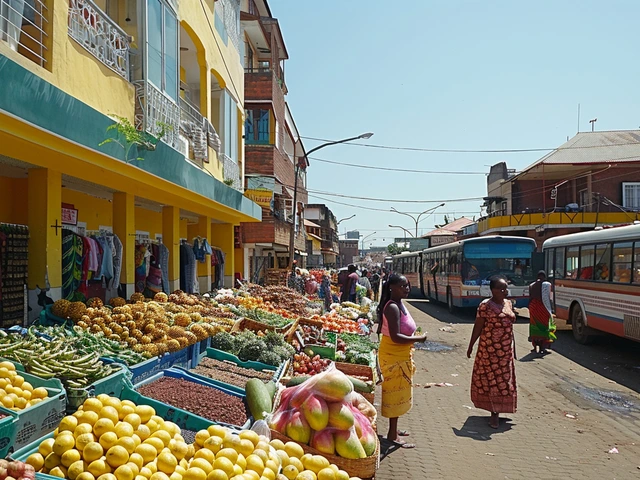The Current State of Safety in Ethiopia
Living in Ethiopia, a country nestled in the Horn of Africa with a mosaic of languages, cultures, and ancient traditions, raises questions about safety, especially for those coming from different parts of the world. With its capital, Addis Ababa, standing as a symbol of both modernity and tradition, Ethiopia offers a unique lifestyle. However, understanding the safety landscape is crucial for anyone considering making Ethiopia their new home.
The perception of safety in Ethiopia is often shaped by the historical context and the ongoing socio-political developments. It's essential to acknowledge that Ethiopia has faced its share of challenges. From political tensions to environmental issues, these factors can influence overall safety. Yet, it's also important to recognize the strides Ethiopia has made towards stability and development. For instance, the government's efforts to boost tourism and attract foreign investments have contributed to a more secure environment for both locals and expatriates.
When discussing personal safety, it's important to differentiate between various regions within Ethiopia. Like any country, Ethiopia has areas that are more susceptible to safety concerns than others. The Ethiopian government, along with international bodies, regularly issues updates on regions that might pose risks. Paying attention to these advisories and remaining informed about the socio-political climate is essential for anyone living in or considering moving to Ethiopia.
Practical Safety Tips for Living in Ethiopia
Adapting to life in Ethiopia requires an understanding of the local context and a proactive approach to personal security. Here are some practical tips to consider:
- Stay informed about the local news and any travel advisories. Knowledge is power, especially when it comes to personal safety.
- Engage with the expatriate and local communities. Building a network can provide support, advice, and valuable insights into how to navigate life in Ethiopia safely.
- Be mindful of cultural practices and local laws. Ethiopia is a country with deep-seated traditions and legal regulations that might differ significantly from what you're accustomed to. Respecting these differences is not only crucial for personal safety but also for integration into the community.
- Consider the environmental factors. Ethiopia's diverse geography can present unique challenges, from high altitudes to seasonal floods. Being prepared for such conditions can mitigate potential safety risks.
- Embrace precautionary health measures. With different climate zones and environmental conditions, Ethiopia has health considerations that expatriates might not be familiar with. Ensuring you're up-to-date with vaccinations and have access to healthcare is pivotal.
Living in Ethiopia offers a remarkable opportunity to experience a country that's rich in history and culture, yet understanding and adapting to the safety dynamics is key. By staying informed, engaging with the community, and respecting local norms, expatriates and potential residents can navigate the challenges and embrace the unique lifestyle Ethiopia has to offer.

 Exploring Career Opportunities in Ethiopian Industries
Exploring Career Opportunities in Ethiopian Industries
 Top Online Businesses Thriving in Ethiopia 2024
Top Online Businesses Thriving in Ethiopia 2024
 Cost of Living: How Much Money You Need for a Comfortable Life in Ethiopia
Cost of Living: How Much Money You Need for a Comfortable Life in Ethiopia
 5 Booming Careers You Should Consider for a Bright Future
5 Booming Careers You Should Consider for a Bright Future
 Who Are the Wealthiest People in Ethiopia?
Who Are the Wealthiest People in Ethiopia?
grace riehman
April 4, 2024 AT 01:10Hey folks, love that the post covers a lot of ground about safety in Ethiopia! It’s super helpful for anyone thinkin about moving there. Just a heads up, the best way to stay safe is to stay plugged into local news – even the small community blogs can be a goldmine. And don’t forget to meet up with the expat groups, they’re really welcoming and can guide you through the quirks of daily life. Stay safe and enjoy the vibrant culture!
MONA RAMIDI
April 4, 2024 AT 02:20Honestly, the whole "safety" spiel feels a bit half‑baked – you can’t just skim the headlines and think you’re covered! I’m tired of glossy travel guides that gloss over the real dangers, and it’s infuriating that this article pretends everything is rosy. If you’re truly planning to live there, you need to be on guard 24/7, not just during the tourist season. Don’t be fooled by the city’s bright lights; the undercurrents are real and relentless. Get ready to fight for your peace of mind every single day!
Vinay Upadhyay
April 4, 2024 AT 03:43Well, this post managed to be both overly vague and suspiciously optimistic – a classic case of mixed messaging. The grammar in the bullet points is a curious blend of British and American styles; why not pick one? Also, the phrase "knowledge is power" is cliché, but at least it’s correct. I appreciate the intent, but the execution feels half‑hearted and, frankly, a tad lazy. A little more precision would do wonders here.
Eve Alice Malik
April 4, 2024 AT 05:06Totally get where you’re coming from, especially the bit about joining local communities – that’s the real deal. When I first moved, the neighborhood gatherings turned out to be the safest places because everyone looked out for each other. And hey, staying updated on the news isn’t just about reading headlines; it’s about listening to what people on the street are saying. So, grab a coffee, chat with the locals, and you’ll feel a lot more at ease.
Debbie Billingsley
April 4, 2024 AT 07:53It’s bewildering to see such a lukewarm approach to national safety when our own country's standards are crystal clear. If you’re serious about security, look at how disciplined our institutions are – we don’t need vague tips, we need concrete measures. The article should have stressed the importance of respecting local laws, which are far stricter than many foreigners anticipate. Anything less is a disservice to potential residents.
Patrick Van den Berghe
April 4, 2024 AT 10:40Interesting point but you missed the nuance regarding regional differences the article barely scratches the surface of I think more local insight would help
Josephine Gardiner
April 4, 2024 AT 13:26It is advisable to review and adhere to local advisories before relocation.
Jordan Fields
April 4, 2024 AT 16:13Adhering to official guidelines ensures personal safety.
Divyaa Patel
April 4, 2024 AT 19:00Ethiopia, a land where ancient whispers echo through the highlands, invites the curious soul to explore its myriad layers of safety and risk. The rugged terrain, with its sudden cliffs and seasonal floods, reminds us that nature itself is a vigilant guardian, demanding reverence and preparation. One must learn the rhythm of the rains, for a careless trek during the wet season can turn a scenic hike into a perilous ordeal. Urban centers, especially Addis Ababa, pulse with modernity, yet beneath the bustling streets lie subtle currents of political tension that can surface without warning. Engaging with local elders offers a compass, as their seasoned perspectives illuminate the unseen hazards that tourists often overlook. Health, too, is a silent sentinel; vaccinations are not merely recommendations but essential armor against endemic illnesses. The communal fabric of Ethiopian society, woven from threads of hospitality, provides an informal safety net, but it is not a substitute for personal vigilance. Understanding regional dialects, even in passing, can prevent miscommunication that might otherwise spiral into conflict. The layered legal framework, rooted in centuries‑old customs, demands respect; ignorance is no excuse when it comes to local statutes. While the government’s efforts to attract foreign investment have improved infrastructure, pockets of unreliability persist, especially in remote locales where power and communication are fickle friends. Travelers who ignore these nuances may find themselves stranded, relying on the kindness of strangers, a scenario both humbling and hazardous. Yet, for those who approach Ethiopia with humility and preparedness, the rewards far outweigh the risks. The kaleidoscope of cultures, the aromatic coffee ceremonies, and the majestic monasteries stand as testaments to a nation resilient beyond measure. In this dance between danger and delight, awareness becomes the music that guides every step. By staying informed, building authentic relationships, and honoring the land’s intrinsic rhythms, expatriates can thrive safely amid Ethiopia’s breathtaking tapestry.